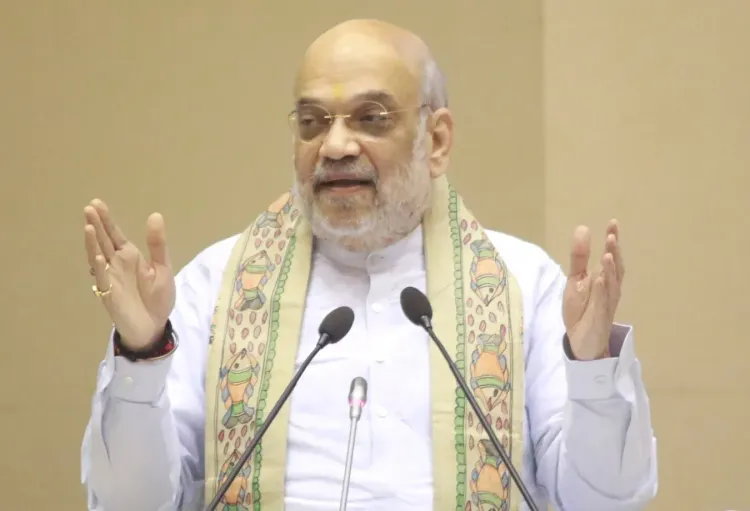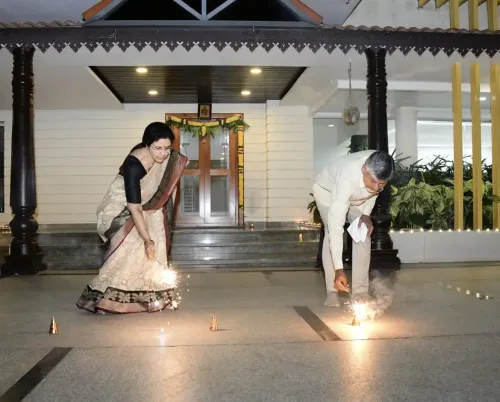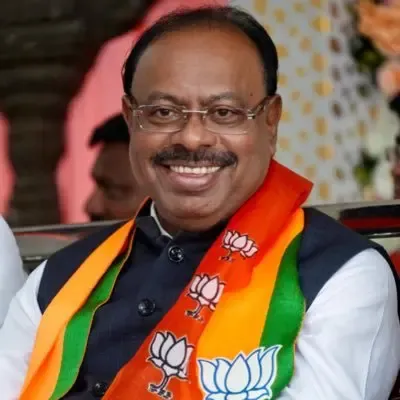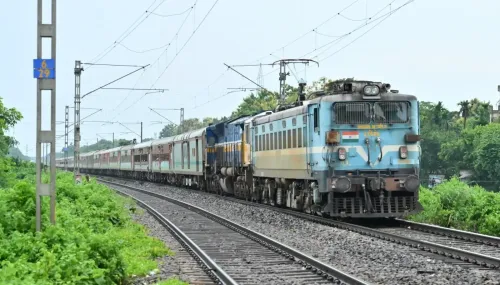How is Bharat Vikas Parishad a Bridge Between Duty and Nation-Building?

Synopsis
Key Takeaways
- Bharat Vikas Parishad is integral to India's cultural and social framework.
- The organisation operates in over 412 districts with 1,600 branches.
- HM Amit Shah emphasized the need for service-oriented initiatives in nation-building.
- It plays a crucial role in fostering community empowerment.
- The Parishad aligns with PM Modi's vision for a developed India by 2047.
New Delhi, July 14 (NationPress) Bharat Vikas Parishad transcends the definition of an institution, serving as a unifying concept deeply embedded in the Indian ethos, remarked Union Home and Cooperation Minister Amit Shah during the celebration of the Parishad's 63rd Foundation Day in New Delhi. He portrayed its six-decade journey as a profound illustration of the constructive influence of organised service, cultural values, and community involvement.
He emphasized the organisation’s crucial role in fortifying India’s social and cultural framework through grassroots initiatives.
HM Shah stressed that the Parishad’s methodology—merging service with organization and culture with nation-building—remains exceedingly pertinent in the current scenario.
He linked its mission with Prime Minister Narendra Modi’s national development aspirations for 2047, which aim for liberation from colonial mindsets, appreciation of heritage, unity, and a robust sense of civic responsibility.
He commended the Parishad for acting as a bridge between those eager to serve and those in need, affirming its role in empowering communities without seeking recognition.
The Union Home Minister also paid tribute to freedom fighter Hemam Neelmani Singh of Manipur, who was posthumously honored at the event.
Inspired by Netaji Subhash Chandra Bose, Singh joined the Azad Hind Fauj in 1944 and later committed his life to education, service, and linguistic unity.
Shah recalled Singh’s lasting impact on youth in Manipur, particularly in advocating for Hindi as a bridge language.
Highlighting the Parishad’s national presence, HM Shah noted that it now functions in 412 districts, with over 1,600 branches and 84,000 affiliated families.
He praised its grassroots initiatives, including disaster relief, blood donation drives, and cultural education camps.
HM Shah also reiterated Prime Minister Modi’s vision of elevating India to developed nation status by 2047.
Reflecting on the past decade, he cited significant accomplishments under PM Modi’s leadership, such as financial inclusion, enhanced sanitation, increased housing access, and women’s empowerment through schemes like the Mudra Yojana.
He concluded by affirming the enduring importance of service-oriented organisations in shaping India’s future, noting that their quiet, persistent efforts are indispensable to national progress.









